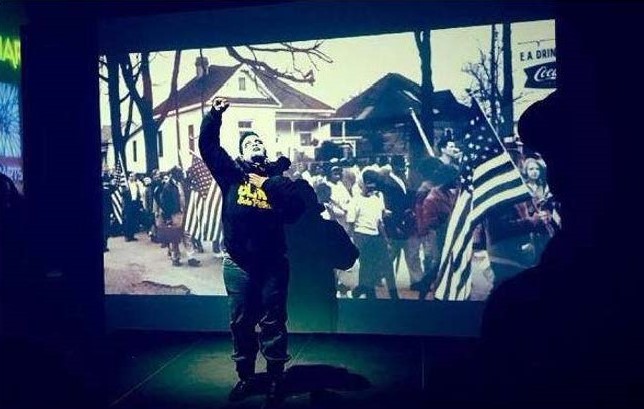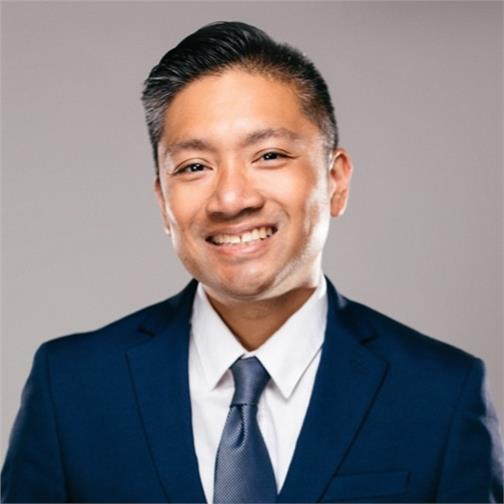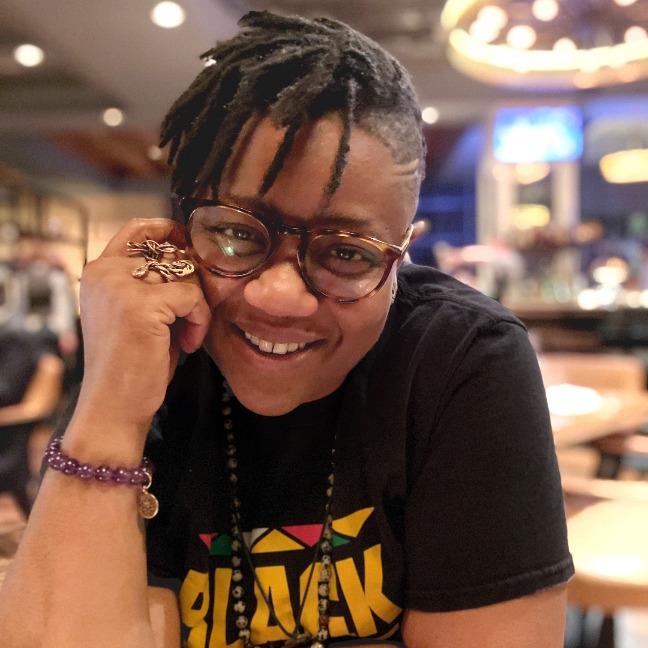Ethnic Studies
Apply NowProgram Description
Ethnic Studies provides a learning space for students to examine the role of power and how it shapes race, ethnicity, class, gender, sexual identity, ability, age, citizenship, spiritual belief and language. It provides critical lens to interrogate and contextualize contemporary social issues and ways communities of color express resistance. By taking one of our courses, students become more knowledgeable of the social and political issues in our country and empowered to become culturally competent and civically engaged change agents.

The Program
Ethnic Studies is a comparative and interdisciplinary field of critical race studies that centers on the experiences and contributions of people of Indigenous, African, Latinx, and Asian descent. Our courses provide students opportunities to deepen their understandings of colonial-constructed ideologies and systems and examine how they shape the experiences of communities of color.
Using a range of materials produced by authors and creators of color, queer scholars and other minoritized voices, we deeply examine power and how it influences the processes whereby social identities and categories of difference are (re)produced, supported, resisted, inhabited, embraced, and transformed across time and geographic space. In this examination, we also center the rich history of knowledge-making and culture-making within spaces of color and explore the innovative ways in which communities of color express forms of resistance and strategize in their liberation movements.
By familiarizing students with a range of methodological tools for the study of social and cultural life, while prioritizing the voices and perspectives of marginalized individuals and minoritized communities, we open up an intellectual space within which the term "ethnic" in "ethnic studies" is both critically deconstructed and strategically affirmed.
Career Outlook
The study of Ethnic Studies provides a broad base of knowledge and skills that can be applied to a wide range of careers including:
- Arts
- Business and marketing
- Community development and organizing
- Government and politics
- International relations
- Journalism and media
- Law
- Psychology and counseling
- Public health and medicine
- Social work
- Teaching and education at all levels
Looking for a list of classes offered this semester?
Check out the current class schedule.All Courses
ETHN 101 Latin American and Indigenous Peoples History and Culture (3 units)
Study of the historical and cultural presence of Native Americans/Indians and Latino[a] Americans in the United States. We will study the general background of two of America's oldest ethnic groups and examine issues that show racial and ethnic stereotypes as well as how these images create an ethnic identity.
ETHN 103 Asian Americans and US Institutions (3 units)
An examination of the Asian American experience in relationship to US institutions such as: economics, government, law, family, and mass media. A particular focus on the racial construction of Asian American identity and community through a historical, social, cultural, and political lens that explains Asian migration to the United States, construction of racialized stereotypes, anti-Asian violence, and community responses of political activism, organizing, solidarity, and liberation movements with Black, Indigenous, and People of Color communities (BIPOC).
ETHN 105 African American History and Culture (3 units)
Survey of the history of African Americans from their origins in Africa to the present, with special emphasis on their contributions to California's social, political, and economic institutions. It examines the political, economic, social, and cultural factors as well as interactions between African Americans and the larger society while analyzing the intersection of race and racism.
ETHN 107 Introduction to Native American Studies (3 units)
An introduction to the study of Native American histories, experiences, intellectual traditions, and forms of artistic expression. Students will engage with texts that confront the structural genocide underlying the construction of the U.S. settler state, and will explore Native practices of resistance, resilience, regeneration, and liberation. Course materials will include fiction, poetry, spoken word, and other creative texts, as well as historical and archival studies.
ETHN 108 Race, Gender, and Power in America (3 units)
Exploration in the intersections of race, racism, gender, and nation by a re-examination of U.S. history through a Black, Indigenous, and People of Color (BIPOC) lens. A particular focus on whiteness, colonization, slavery, immigration, decolonization, self-determination, and resistance movements.
ETHN 109 Borders and Crossings (3 units)
Examines how the U.S. processes of racial formation and gendering are related to multiple transnational circulations – circulations of commodities, bodies, labor, capital, knowledge, and culture. We interrogate the material and ideological work of borders – particularly nation-state borders, but also the borders and boundaries of racial and ethnic categories, gendered and sexualized identities, languages, forms of labor, and disciplinary categories of knowledge. Also explored are the many ways in which such borders are variously resisted, contested, transgressed, transcended, and transformed over time.
ETHN 120 Introduction to Black Studies (3 units)
An introductory overview of Black Studies that critically examines and analyzes the academic origins, socio-political contexts, intellectual thoughts, and philosophies associated with understanding the Black experience.
ETHN 130 Introduction to Latina/o/x Studies (3 units)
An overview of Latina/o/x Studies as a discipline, examining and analyzing the academic origins, socio-political contexts, intellectual thoughts, cultural contributions, lived experiences, and philosophies of Latinx communities.
ETHN 140 Introduction to Asian and Pacific Islander American Studies (3 units)
An overview of Asian and Pacific Islander American Studies (APIA) and its contemporary approaches to studying APIA people's and communities' historical, political, social, and cultural practices and experiences in the United States. Analyzes and explores concepts such as race and racism, immigration, settler colonialism, the racialization of APIA communities, and discussions toward anti-racism and anti-colonial issues.
ETHN 142 Filipina/o/x Community Issues (3 units)
An introduction to understanding contemporary social issues of Filipina/o/x Americans. Uses an interdisciplinary approach of Ethnic Studies to explore the effects of: Spanish and American colonialism; diaspora; assimilation, and decolonization.
ETHN 265 Evolution of Hip Hop Culture: A Socio-Economic and Political Perspective (3 units)
This is a comprehensive exploration of the evolution of hip hop culture, emphasizing its roots in African traditions and its development through the African diaspora. It delves into foundational elements and key theoretical frameworks used to study hip hop, examining its various forms of expression, including music, dance, spoken word, and visual art. The course provides a nuanced understanding of hip hop's cultural, social, and political dimensions by tracing its history and analyzing its impact on Black communities in the United States.
ETHN 288 Black Cinema (3 units)
This is a comprehensive exploration of the rich and diverse history of Black film and television across the Americas. It delves into works written, directed by, and starring people of African descent, tracing the development of Black media from the silent film era to the present day. Emphasizing Black cultural production and creative expression, students will analyze how film and television serve as vehicles for protest, resistance, and cultural affirmation. The curriculum incorporates Black studies theoretical frameworks and research methodologies to provide a deeper understanding of how media representations influence and challenge contemporary perspectives on race, gender, sexuality, and societal norms within today's society.
Rod Daus-Magbual

Dr. Rod Daus-Magbual (he/him) comes from an immigrant family who came from Canada via the Philippines to the United States in the early 1980s. Through his family's experiences, he understands what resiliency means and how to apply it in his own life. Heavily influenced by Ethnic Studies, he realized how history shapes identity and how understanding the stories of the oppressed has informed his motivation to serve the community.
Dr. Magbual received his Education Doctorate at the University of San Francisco. He also has played an integral role in mentoring hundreds of students to become teachers and leaders through their participation in the Pin@y Educational Partnerships (PEP). He teaches because he is passionate about social justice and believes in his students.
Dr. Rod learned from his students and their families that they share similar experiences. They expressed narratives of holding down multiple jobs, going to school, and supporting their family. For many, the struggle has become unbearable. He listened to stories of students which led him to successfully run as a Daly City Council member and ultimately to the role of Mayor Rod in addition to Dr. Rod and Professor Rod.
A. Villela-Smith

A. Villela-Smith (she/her) is a non-binary Black queer multimedia performer, producer, educator, activist, and DJ. In 2015, she graduated with her master's degree in Ethnic Studies at SF State. Since, she has been teaching comparative ethnic and Black Studies for the past six years.
A's previous research centered on Black queer media. She looked at how film and television constructed Black female masculinity and how that representation informs the lived-experiences of Black masculine of center cisgendered women.
A has also engaged in constructing Black queer representation. Her TV series Dyke Central (2012), centered the experience of a Black masculine of center lesbian living in and navigating through Oakland queer scene.
As a performance artist, A engages in theatrical storytelling through multimedia and drag performance.
The Ethnic Studies Program Learning Outcomes (PLOs) are currently under construction.
Location: Building 1
Email: socialsci-creativearts@smccd.edu